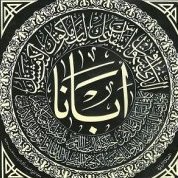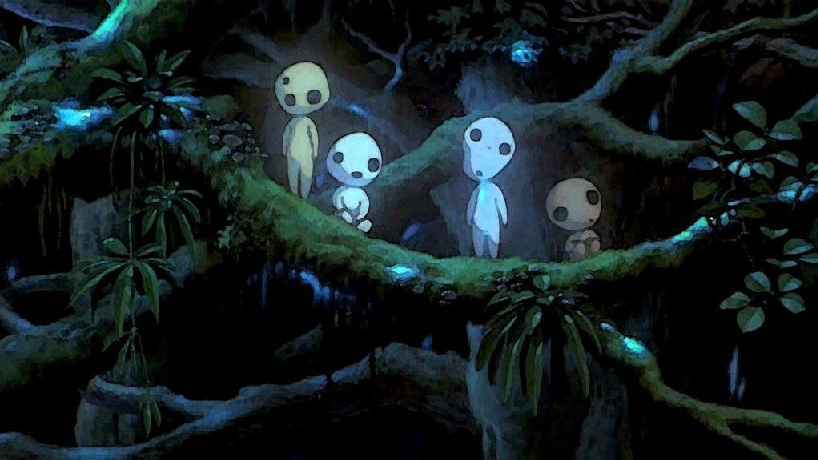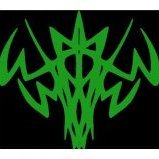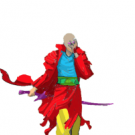-
Posts
255 -
Joined
-
Last visited
Llarimar's Achievements
215
Reputation
-
Yes, because many of the "gods" of the cosmere are entities that people have actually seen and met, I've always considered Jasnah's atheism to be an attitudinal stance. She knows that beings of great power and significance exist, so it's not like she doesn't believe in them, but she just doesn't consider them worthy of being worshiped as gods because they're not all-powerful and flawlessly perfect. Like, someone in the cosmere who doesn't believe in the existence of "gods" like the Heralds, or the spren, or any given Shard of Adonalsium, is wrong, because those entities do objectively exist. But choosing to believe that they are worthy of worship, or that there is some fundamental distinction between, say, a Knight Radiant and someone like Cultivation, rather than a natural gradient, is another question altogether. And in the scope of the cosmere, I think Jasnah's stance makes a lot of sense. Most of the "gods" we've seen are all imperfect and extremely human individuals, so if you want your gods to be perfect and pure (which not necessarily everyone does), then there would be no reason to consider any of the "gods" of the cosmere to be worthy of worship. Thus a belief in the God Beyond makes a lot of sense, and is really the only escape for the nihilism in the cosmere which starts to consume you when you realize that the "gods" are just flawed humans who are ridiculously highly Invested.
- 16 replies
-
3
-
- supernatural
- cosmere
- (and 8 more)
-
@Weltall, the quotes you've provided are helpful - the fact that Hoid saw the Shattering as a necessity makes me think there were indeed extenuating circumstances which motivated the killing, rather than just greedy motives. But I also can't shake the feeling that there was a wrongness to it, like it was something that should have been or could have been avoided. I also wonder if there were some degree of manipulation involved - if some of the darker-intented Vessels convinced the others it needed to happen, when in fact it didn't. What it reminds me of, really, is the splitting of the crystal in the Dark Crystal, for anyone who is familiar. In that movie there's an ancient, sacred crystal which is broken, which splits apart the deities and blights the earth, with the eventual resolution of the story being the restoration of the crystal. But during the interim while the crystal is broken, it is a time of wrongness and disunity, and there is a sense that it never should have happened. This is how I feel about the Shattering - that the killing of Adonalsium and the seizing of the Shards was somehow deeply wrong, or at the very least not ideal.
-
This has probably been discussed before, but I have so many questions surrounding the killing of Adonalsium, and one of the biggest is whether it was an evil act. Although a number of the gods we've seen have been clearly evil, a lot of them have seemed like "good guys", (though that may just be because of nature of their Shard), and for a while I've been worried that they were essentially villains. From what we've learned it seems like the murder was very dark and disturbing, like something that should never have happened, and that has afflicted the cosmere with a terrible wound ever since. There are multiple circumstances I think could have surrounding the killing of Adonalsium, among which are: 1. It was an evil, unnecessary act carried out by violent criminals who outsmarted Adonalsium, a benevolent god, for the sake of their own greed 2. It was a violent, but ultimately necessary and chivalrous act which was carried out either (A) as a last resort in response to some terrible mistake or impending threat, with Adonalsium possibly consenting, or (B) in response to the madness and deterioration of Adonalsium 3. It was a natural killing without dark undertones, to which Adonalsium consented to for some reason (perhaps his age and fatigue) Obviously there are other possibilities but I feel like Scenario 1 is the most likely from what we have seen, and that kind of... disturbs me. The fact that the 16 gods were all criminals and murderers - it makes the cosmere seem strangely nihilistic and broken (and suddenly a belief in the God Beyond makes a lot of sense). And to anyone who points out that Hoid was there... that doesn't provide me with any assurance that the killing of Adonalsium was any more justified. Hoid is kind of a gray character, and I can definitely see him participating in an evil murder-heist to kill a god if he had the proper motivation.
-
Thanks for this, @Rushu42, I'm glad to know other people were as impressed with Navani as I was! I can't wait to see her figure out her powers and oaths in the next books. I feel the same that Venli is a curiously dislikable character in a way that seems intentional (it's perversely part of her appeal), but I've also talked to someone who says she's unironically one of their favorites, so go figure. And that's a great idea to have a Venli-Eshonai reconciliation arc, perhaps akin to Dalinar in OB where he hears his wife's voice through the spiritual realm.
-

Did we already know about the Radiants and spren?
Llarimar replied to Llarimar's topic in Stormlight Archive
I didn't hear it from the 17th Shard podcast, though maybe if I absorbed it from commenters in the forum, that's where they heard it. My assumption was partially based on that scene in OB (I don't have the book with me now), where Dalinar has a vision of the Recreance and he sees the Radiants willingly abandon their oaths. That whole scene was framed as very dignified and noble, and I remember there being some mention to the fact that the Radiants "feared what their powers could bring" or something. The fact that the Recreance was depicted a chivalrous, moral act led me to assume that the spren were willing participants, since if the act was moral it seemed obvious they would agree. -
I am ALL FOR Jasnah becoming a worldhopping figure in future books, and I definitely think she can handle the cosmere (however the question of whether the cosmere can handle her, as you point out, is up for debate). But I'm not sure how I feel about the Jasnah-Wit relationship. From Wit's perspective, it's strange to imagine him in a relationship, not only because of his jovial and philandering personality but also because he's basically immortal - no matter how intelligent Jasnah is, how can she really compete with him when he knows so much? And are we sure that Wit is being completely honest, like, would he really tell Jasnah everything he knows? From Jasnah's perspective, I think it's strange since I was pretty much certain she was gay and I thought I would have been a great opportunity to include a gay or asexual character. So it just really took me by surprise, and even disappointed me. Maybe I'll warm up to the idea if they stay together in future books.
-

Did we already know about the Radiants and spren?
Llarimar replied to Llarimar's topic in Stormlight Archive
Yeah, my younger brother was also shocked by the reveal, so I'm sure not everyone suspected it. Some theories are suspected and then later confirmed, but for some reason I thought that this theory had already been confirmed in OB, which is why the "reveal" confused me. -

Renarin's name - what I'm hoping Brandon ISN'T doing
Llarimar replied to Ixthos's topic in Stormlight Archive
So... funny story that this thread has reminded me of. I once had a dream that I was reading a Mistborn book, and it said something like, "Vin was flying over Luthadel. She passed by a cathedral, where worshippers were gathering. A new religion had been forming in the city, called the Church of Jesus Christ of Latter-day Saints, and its followers were called Mormons. Vin wasn't sure about this new religion..." And I remember being so shocked and disappointed in the dream, like, "Why would he do this? Why is he using his books as a religious soapbox? He's broken the fourth wall!" It was very funny. -

Did we already know about the Radiants and spren?
Llarimar replied to Llarimar's topic in Stormlight Archive
Yeah... and if it was sort of a logical leap to assume that the spren willingly went along with the Recreance, then I don't think it should have been framed as a bombshell moment like it was in RoW. At the very least Adolin should have said something like, "Don't you know why the Radiants abandoned their oaths? How do we know the spren didn't agree with them?" The fact that it was never brought up during the trial made it seem like there was a lack of communication - like Dalinar, for instance, presumably knew why the Radiants abandoned their oaths, but didn't tell Adolin. -
When Maya reveals that the Radiants and spren mutually chose to break their oaths, for some reason this was not a surprise to me, but I can't remember why. I don't know if there is a hint in OB that suggests the spren chose to break their oaths, or if perhaps I stumbled across a forum on this page which made the same suggestion, but either way I felt like I already knew this. I was, in fact, a little confused throughout the entire Shadesmar sequence and the honorspren trial because I kept thinking, "I thought the Radiants and the spren knew what they were doing, and that it was the right thing to do. Why is no one saying that?" I'm pretty sure the reveal that the Radiants broke their oaths because they feared their powers would lead to disaster (as happened on Ashyn), in other words that breaking their oaths was a chivalrous act, was revealed in OB. Maybe it didn't explicitly say at the time that the spren were also clued in to the morality of breaking the oaths, but isn't it obvious that they would have been? I must have just assumed that the spren knew what they were doing, and why they were doing it, because the Radiants knew. Does anyone know if it's been stated or strongly suggested before RoW that the Radiant spren were willing participants in the Recreance, and if so was anyone else confused by this being treated like a bombshell reveal?
-
I did love this! I was a bit concerned at times that they were "humanizing" the antagonists too much and making it seem like no one is "the bad guy", which does bother me to an extent (I like fleshed-out villains but I also like them to truly be villains). But I appreciated that even as we developed a better understanding of where Raboniel's motivations were coming from, that doesn't mean she became a "good guy" - she stayed true to her convictions by continuing to corrupt the Sibling and by inventing anti-Stormlight. Leshwi is a different example since I think she is leaning more towards "good" at the end - or at least, towards neutrality with the Parshendi. But there's also no shortage of unambiguous bad guys, such as Odium, Moash, and the Punisher, to contrast with these more intermediate figures.
-

[Theory} Shallan is Chanarach's Daughter
Llarimar replied to teknopathetic's topic in Stormlight Archive
The way that I read this part, I didn't think the box was actually glowing. Shallan saw it glowing, but I thought that was some sort of trauma-induced hallucination. In WoR it says something like, "How could they not see the box glowing? It was blinding to her." If the glow is blindingly bright, then I would imagine people would be able to see it. So the fact that Shallan sees a glow is because she's haunted by guilt, and by the memory of the glowing sword that killed her mother - that's what I understood. And her father glancing up at the box doesn't necessarily imply he saw it glowing. I concede I could be wrong about this, but it does seem strange that Shallan would see it glowing when other people would not, if it was indeed glowing. -
So I've been skeptical of Sylladin in the past, but aside from being more strongly suggested in this book than in any of the others (the amount of time they spend together, their shared mental trauma, the lack of other romantic prospects for Kaladin), I'm actually starting to think it might also make sense from a character development perspective for Syl. Throughout all of RoW she's fascinated with humans and is constantly becoming more humanlike, which is part of an ongoing theme across this book that spren are more like humans than they would like to admit. Syl is also terrified of Kaladin's death, and she's terrified of her own immortality as well (thoughts on mortality have been an ongoing theme for Syl since WoK, if I remember). So it might make total sense if for Syl's character arc, she ended up essentially becoming human, becoming mortal, à la Arwen. And in such a scenario, a romantic relationship with Kaladin makes a lot sense. This raises another question which I'm sure has been discussed elsewhere - can humans and spren reproduce? My guess would be no, but I had the thought during this book that that might be the origin of the Horneater ability to see all spren - because somewhere in their genealogy, they have a human-spren ancestor. And if humans and spren can't reproduce (again, I'm sure this has been addressed elsewhere), what about spren and spren? I remember Syl saying something about being "created" by the Stormfather, but then Notum mentions in RoW that his father is a deadeye, which makes me wonder exactly how their parentage works.



